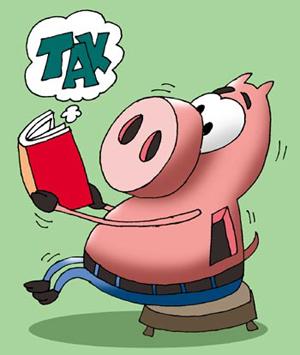 | « Back to article | Print this article |

Evaluate recurring investment products and do the numbers before making any investments, experts tell Tinesh Bhasin.
With March-end being three weeks away, you are running against a tight deadline to do your annual tax planning. But there are also strong chances of making blunders, if you rush to buy investment or insurance products.
The most common mistake that individuals make is to get into a product that requires recurring investments in subsequent years. The consequences: Your financial planning can go for a toss.
Last year Chandan Kumar, a school teacher, invested in a traditional insurance plan in haste. But later he realised that the post-tax returns from the policy are much lower than from bank fixed deposits.
"I can't discontinue now. Maybe after three years or so I will make it a paid-up policy so that I don't need to pay further premiums," says Kumar.
Typically, individuals get into asset classes that are doing well at the time of investment without realising if it is suitable.
"Even if someone has not made tax-saving investments as yet, a little planning can help to save tax and also align investments to their goals," says Suresh Sadagopan, founder, Ladder7 Financial Advisors.
According to him, there is a rush to invest in equity-linked savings schemes (ELSS) or unit-linked insurance plans (Ulips) when markets are going up.
When markets are down, investments are channelled into five-year bank deposits, traditional plans or post office savings schemes.
There's some planning required in most of the income tax deductions.
However, in most cases, you just need the receipts, bills or certificates of the purchase made -- for example, housing rent allowance or a term life insurance.
It's the investment part needs attention.
Don't invest more than required
Another common problem that many financial planners come across is that those in the 30 per cent tax bracket tend to invest more in tax-saving instruments than the prescribed limit.
"It happens primarily because these persons are unorganised. It's common to see that such individuals have a housing loan, public provident fund, ELSS and even insurance," says Malhar Majumder, a certified financial planner.
First, check the deductions you can claim under Section 80C, which has a limit of Rs 150,000.
There are about 15 types of investments and expenses a person can claim deductions for in this section.
Before shortlisting the right products, check the amount already exhausted by the Employees Provident Fund (EPF). Subtract this amount from Rs 150,000 to know the available limit.
If you have a home loan, the principal portion can form another big chunk and help you exhaust the Section 80C limit.
If you have a joint home loan, remember to claim deductions only to the extent you are contributing.
If it is 50:50, you should claim only 50 per cent of the principal repayment.
If you take it step-by-step, you can prevent going overboard on tax-saving instruments.
You can use the same funds to invest in better alternatives that match your goals.
ELSS is not for everyone
The simple advice that many would give is invest in ELSS if you have the risk appetite for equities.
It will remain the best tax-saving instrument even in the future despite the introduction of 10 per cent capital gains on equities.
Among tax saving instruments it has the lowest lock-in of three years and the potential to give the highest post-tax returns. But it's definitely not for everyone.
Opt for ELSS if you are below 50. Before March ending, stagger your investment in two parts.
If you are below 30, you can even invest a lump sum with a long-term view.
If you are close to retirement, preferably avoid ELSS.
As you are nearing retirement, getting into a volatile investment is not advisable unless you are too short of reaching the desired retirement corpus.
The same goes for senior citizens.
Individuals over 50 can look at retirement schemes from mutual funds. Opt for funds that are debt-oriented.
These schemes come with a five-year lock-in and debt-oriented funds are less volatile than equity-oriented ones.
If you want to avoid equities entirely, the best option is to go for the voluntary provident fund (VPF) as the interest rates paid will be at par with employees' provident fund.
Last year, the rates were 8.65 per cent.
If the VPF option is not available, then opt for PPF that has an interest rate of 7.6 per cent at present.
"As PPF rate fluctuates regularly, someone who has not invested in it may avoid it. National Pension Scheme is a much better option for someone who has trust in government schemes and can stomach volatility," says Majumder.
Benefits through senior citizens and dependants
If your parents are senior citizens and you pay for their health insurance, there will be a deduction of up to Rs 30,000.
In the case of parents over 80 years, who might not be eligible for insurance, a combined expense of Rs 30,000 can be claimed.
If your dependant is suffering from a specified disease (cancer, neurological diseases, chronic renal failure, etc), a deduction can be claimed under Section 80DDB.
For dependents below 60 years, a deduction up to Rs 40,000 is allowed.
In case of senior citizens, deduction is permitted up to Rs 60,000 and for those above 80 years, up to Rs 80,000.
Section 80DD provides benefits up to Rs 75,000 is permitted for disabled dependants.
Donations and education loan
One can also get, either 50 per cent or 100 per cent, on donations to certain kind of institutions.
Donations made beyond 10 per cent of gross total income in a year do not qualify for tax deduction.
If a person has an ongoing education loan, the interest can be used for deduction under Section 80E.
Illustration: Uttam Ghosh/Rediff.com